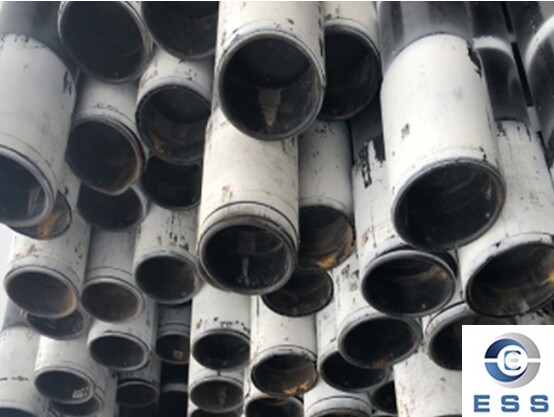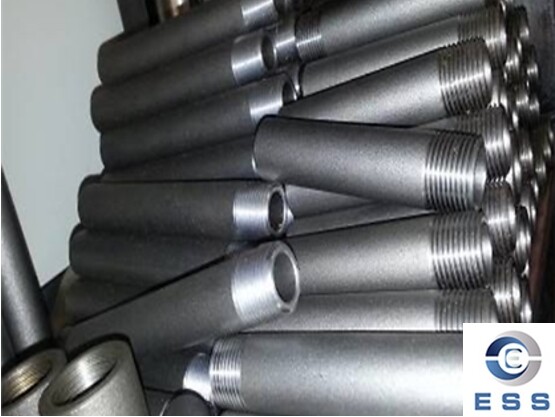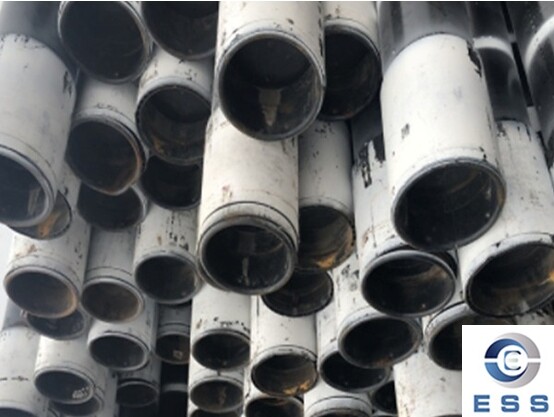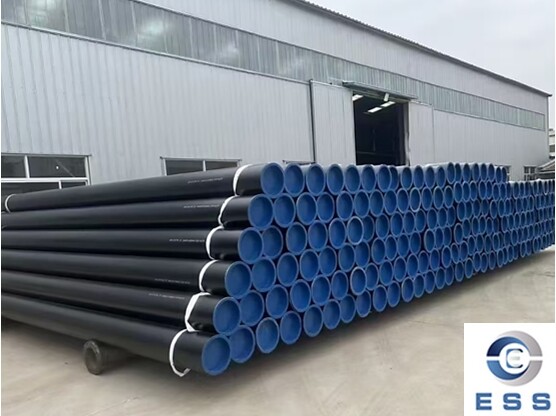
The corrosion of oil
casing pipe is the most important issue to be concerned about during use.
Many studies have shown that more than 60% of the failure accidents of the pipe
string are related to its corrosion behavior in the drilling fluid. Corrosion
not only causes the casing pipe wall
thickness to be thinned and reduces its bearing capacity, but may also cause
safety problems such as leakage. Common types of corrosion include hydrogen
sulfide, carbon dioxide stress corrosion damage, electrochemical corrosion, and
epoxy mold corrosion. These types of corrosion may cause serious damage to oil
casing pipe under specific geological and mining conditions.
Anti-corrosion treatment of oil casing pipe
is a key measure to ensure its long-term stable operation in harsh underground
environments. The following are some of the main anti-corrosion treatment
methods:
1. Strict water quality management
Water quality meets the standard: First of
all, it is necessary to ensure that the water quality in the injection well
meets the standard and reduce the corrosion source introduced by water quality
problems. This includes strengthening water quality testing and management,
implementing cleaning and sewage injection, and strengthening the cleaning of
the main water pipeline to ensure that the water quality in the station and at
the bottom of the well meets the standard.
2. Sterilization treatment
Annulus protection fluid: For water
injection wells that have been put into production, annulus protection fluid
mainly for sterilization is regularly applied to inhibit bacterial growth and
reduce bacterial corrosion. This practice should be institutionalized to ensure
regular addition.
3. Physical protection
Rubber rings and centralizers: In view of
the accelerated effect of mechanical abrasion on oil casing pipe corrosion, it
is recommended to install rubber rings on the tubing couplings, or to install centralizers in areas with severe well deviation. This
can effectively prevent the tubing from scratching the casing pipe during the
operation and water injection process, and avoid long-term contact between the
tubing and one side of the casing pipe, thereby reducing friction corrosion.
4. High-temperature sterilization
High-temperature water or water vapor: In
view of the serious bacterial corrosion under the scale, and the
characteristics of slow growth and easy killing of SRB (sulfate-reducing
bacteria) at high temperatures, 100 degrees Celsius high-temperature water or
water vapor can be regularly injected into the annulus to kill the SRB under
the scale, thereby reducing bacterial corrosion.
5. Use cathodic protection and coated
casing pipe with caution
Cathode protection: Cathodic protection is
an electrochemical anti-corrosion method that prevents corrosion reactions by
connecting a power source to the casing pipe to make it a cathode. The cathodic
protection system usually includes a sacrificial anode and an impressed current
system, in which the sacrificial anode corrodes and protects the casing pipe
body, and the impressed current system further prevents corrosion through
current.
Anti-corrosion
coating: One or more layers of anti-corrosion coatings are applied to the
surface of the oil casing pipe, such as epoxy powder coating, polyethylene
coating, etc. These coatings can effectively isolate the contact between the
corrosive medium and the casing pipe substrate, thereby playing an
anti-corrosion role.
It is not recommended to promote the use of
cathodic protection and coated casing pipe before the corrosion in the casing
pipe of the water injection well is effectively controlled. This is because
these two methods may not work effectively under certain conditions and may
even aggravate corrosion.
6. Surface treatment and material
selection
Surface treatment: Appropriately treat the
surface of the oil casing pipe, such as sandblasting, cleaning, etc., to
improve the adhesion and anti-corrosion effect of the coating.
Material selection: Use materials with good
corrosion resistance to manufacture oil casing pipe, such as stainless
steel pipes. Although the cost may be high, it can effectively extend the
service life of the casing pipe.
Summary
In summary, the anti-corrosion treatment of
oil casing pipe is a comprehensive process, which requires water quality
management, sterilization, physical protection, high temperature sterilization,
careful use of specific anti-corrosion methods, surface treatment and material
selection, and anti-corrosion coating to ensure the long-term stable operation
of the casing pipe in harsh environments.













 Eastern Steel Manufacturing Co.,Ltd not only improve product production and sales services, but also provide additional value-added services. As long as you need, we can complete your specific needs together.
Eastern Steel Manufacturing Co.,Ltd not only improve product production and sales services, but also provide additional value-added services. As long as you need, we can complete your specific needs together.










